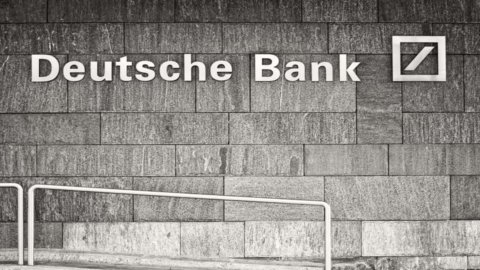The credit crunch in the euro area is easing for loans to households and businesses. This is what emerges from the survey carried out by the ECB on the banking system and published in the monthly bulletin. In the second quarter of the year, euro area banks signaled a net easing of credit granting standards applied to loans to both businesses and households, even though credit standards still remain "relatively restrictive".
Over the review period, net demand for loans continued to be positive and stood above its historical average in the case of loans to businesses and loans to households. Looking ahead, for the third quarter of this year, banks expect a net easing of lending standards and a net increase in demand for all loan categories.
As regards business lending, the survey reveals that for the first time since the second quarter of 2007, euro area banks reported a net easing of lending standards in the second quarter of this year. companies (-3 per cent, compared to 1 per cent in the previous quarter).
Also in the second quarter, the banks in the euro area once again signaled a net easing of the criteria for granting loans to households for the purchase of homes (-4 per cent, substantially as in the previous quarter). On average, all the underlying factors – banks' funding costs and balance sheet constraints, their perceived risks and competitive pressures – contributed to the net easing of credit standards.
Banks further relaxed, to a considerable extent, the pricing terms and conditions applied to loans for house purchase in the second quarter. Looking ahead, euro area banks expect a marginal net easing of lending standards for loans for house purchase in the third quarter of 2014 (-1%).
The ECB also reiterated that the Governing Council "will maintain a high degree of monetary accommodation" and the reference interest rates "will remain at current levels for a prolonged period of time, in consideration of the current inflation prospects"; moreover, the board "is unanimous in its commitment to also resort to unconventional instruments within the framework of its mandate should it still be necessary to face the risks associated with an excessively prolonged period of low inflation".





